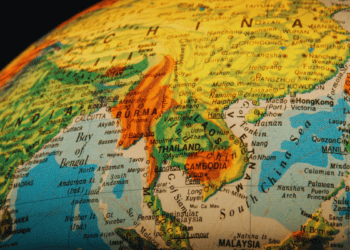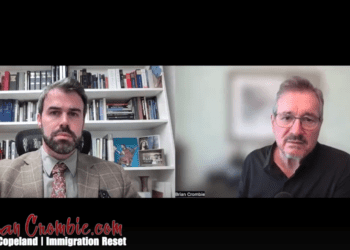Writing in the Globe and Mail, MLI Managing Director Brian Lee Crowley counters recent “handwringing” about the expiry of the 10-year-old Health Accord. He argues that generous federal transfers have still left the system underperforming compared to other western democracies. Rather than demanding “federal leadership” on health care, says Crowley, we should acknowledge the failure of central planning, and allow the provinces to experiment with new means of funding and delivering care. The Globe published an edited version of this column.
Brian Lee Crowley, April 3, 2014
The health care establishment’s lamenting of the expiry this week of the health accord negotiated 10 years ago between Ottawa and the provinces contained lots of handwringing about alleged “underfunding” and lack of “federal leadership.” Neither of these things is at the root of health care’s malaise.
Medicare underperforms when compared to most other universal access systems in peer western industrial democracies: queuing, access to the latest technologies, physicians, paraprofessionals and specialists, and coverage of health services beyond hospital and physician care are all examples. Yet our system is one of the most expensive.
Despite this compelling evidence of deep systemic dysfunction, those who benefit from the status quo are sticking with the analysis of the Romanow Commission that prefigured the expired accord: there is basically nothing wrong with medicare that more money won’t fix. Ottawa must, through this and a vague and unspecified “leadership” role, rescue the system from its torpor and decline.
This is roughly equivalent to Dorothy believing she could close her eyes and wish really hard to be home in Kansas and the ruby slippers of good intentions, federal leadership and more money would magically take her there.
But magic cannot make disappear the fact that, 10 years after the federal health accord and record high levels of federal health transfers that were to buy us change, the system is essentially unreformed, ten years older and more expensive than ever.
The fall of the Berlin Wall is the great unlearned lesson of our health care system. The Wall fell for a reason, and until we learn that reason and apply it to health care, we are doomed to repeat these cycles of pretty sentiments and squandered money.
The lesson in question is the impossibility of central planning. Eastern Europe and others who tried it learned there are systemic reasons why it fails. It fails because of its inherent contradictions and flaws, no matter how beautiful the theory or good the planners’ intentions.
Centrally planned economies couldn’t feed, clothe or house themselves. Why? Because it made impossible demands on central planners.
It demanded that they know how many shoes people would want, in what styles and sizes and where they would need them. It demanded that planners know whether people would prefer more shoes or fewer if they had to make a choice between them and say coats or cars or food or houses or computers. No one knows this. The centrally planned system failed because it could only operate on the basis of what planners knew, which was always much less than what people knew about their own circumstances and needs.
By contrast western society is based on the idea of decentralised information and control, of the rule of law, individual decision-making and competition. Our society operates on more information than any individual or committee or ministry can gather and analyse and act on. Our system works because, not in spite of, no planning ministry being in charge.
But while we might have escaped the delusion of central planning for the most part in the west, medicare remains a lonely outpost of its logic. It can be kept precariously afloat by ever increasing cash infusions. But as Margaret Thatcher once observed, the problem is that eventually you run out of other people’s money.
Is our system a lonely holdover of the central planning mentality? Consider: provincial ministries of health govern, administer and evaluate the services their system provides and pays for. They define “medically necessary services” and then pay for all such services. They forbid private insurance for those services. They negotiate pay with powerful provider groups. They often set the budgets for nominally private health care institutions, appoint most of their board members, and may override management decisions, a power that they employ freely, especially when political controversy looms.
In a Manitoba provincial election a few years ago the quality of toast in hospitals was a major issue. The parties thought that they could and should be able to affect this matter, and the electorate did not laugh them out of court. That’s the central planning mentality.
Central planning encourages delusions of grandeur in which officials come to believe that there is a right solution to every problem (how should doctors be paid and their practice organised, how paraprofessionals should be integrated into medical practice, etc.) which it is up to them to find and impose. Alas, though, there is no one right answer to most such questions because everything depends on circumstances. The system cannot be run successfully from the centre no matter how many billions you lavish on it.




